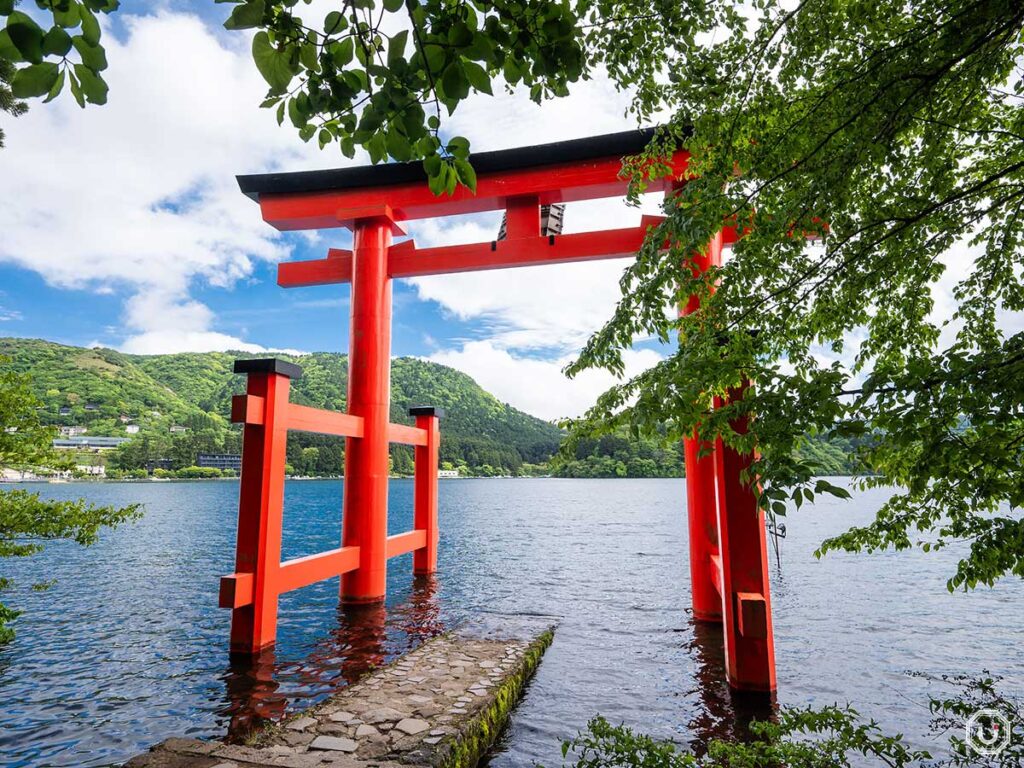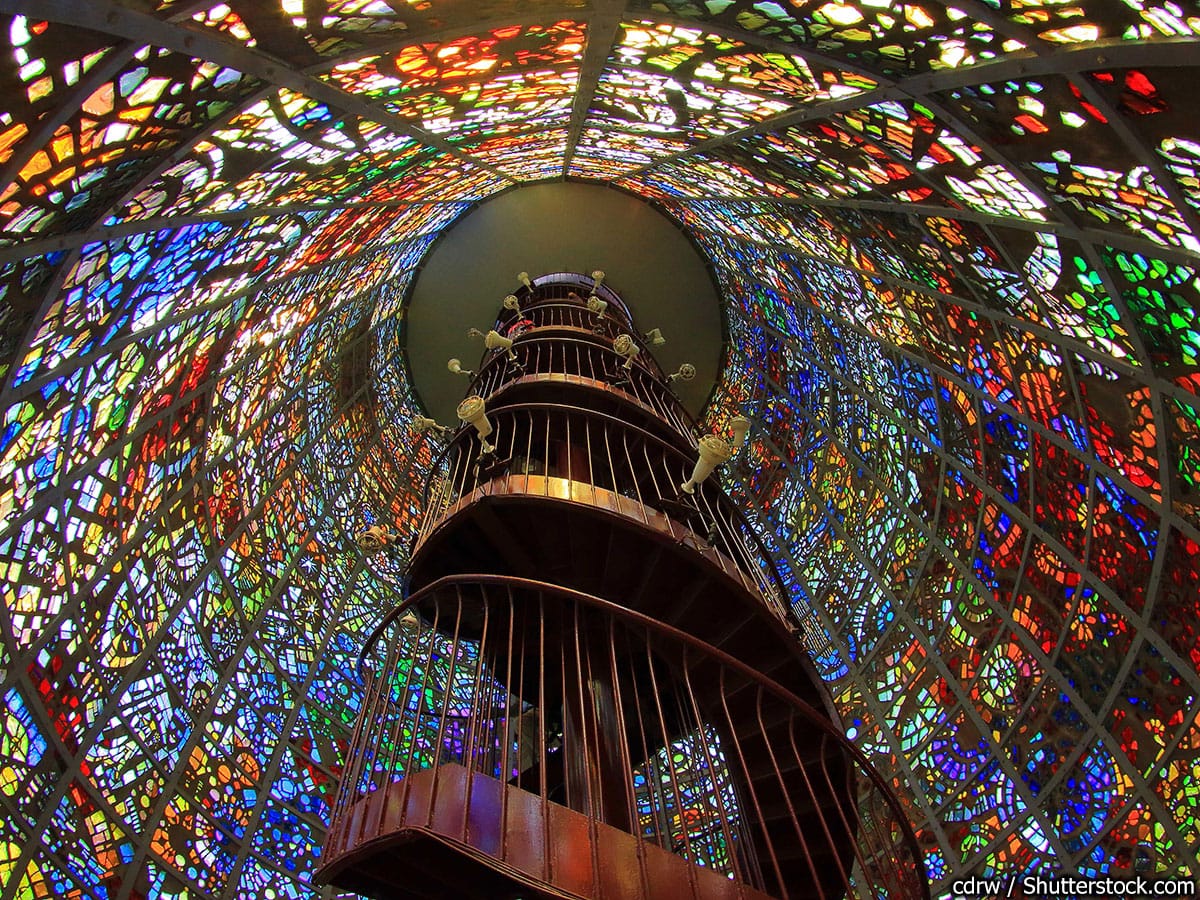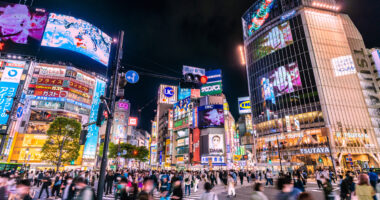When visiting the highly popular sightseeing area of Hakone in Japan, a trip to Hakone Shrine is a must.
The “Torii Gate of Peace” (heiwa no torii), which appears to float upon Lake Ashinoko, is a famous photo spot, with long lines of people waiting for a chance to take pictures.
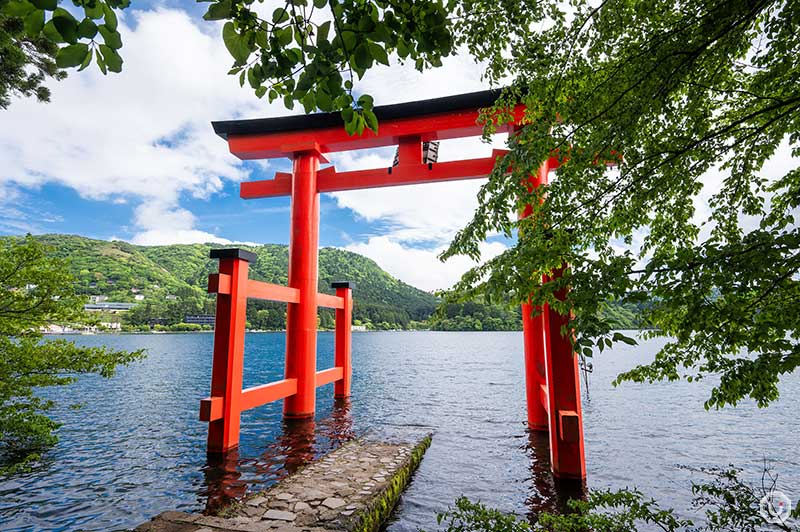
The Torii Gate of Peace
Mountain deities enshrined at Hakone Shrine
Enshrined at Hakone Shrine are the mountain deities Ninigi-no-Mikoto, Konohanasakuya-Hime-no-Mikoto, and Hikohohodemi-no-Mikoto, who have been revered since ancient times.
Collectively known as Hakone Ōgami (The Great Deities of Hakone), these deities are honored at Hakone Shrine.
The deities of Hakone Shrine are famous for bestowing good fortune and warding off evil, fulfilling heartfelt wishes, ensuring traffic safety, and assisting with romantic relationships.
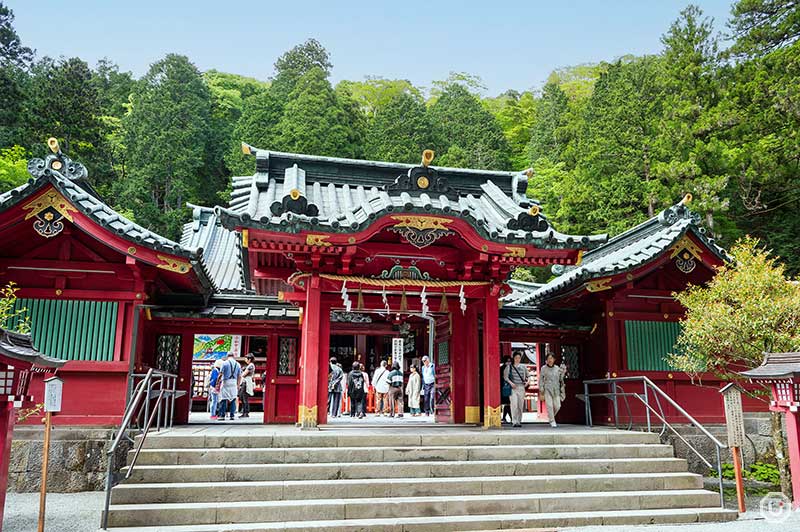
Hakone Shrine’s main shrine building
Located at the foot of Mount Hakone, Hakone Shrine allows you to feel the grandeur of nature up close. Cedar trees over 600 years old line both sides of the approach to the main shrine building.
In the fresh morning air, climbing the 90-step path can offer a sense of purification for both body and mind.
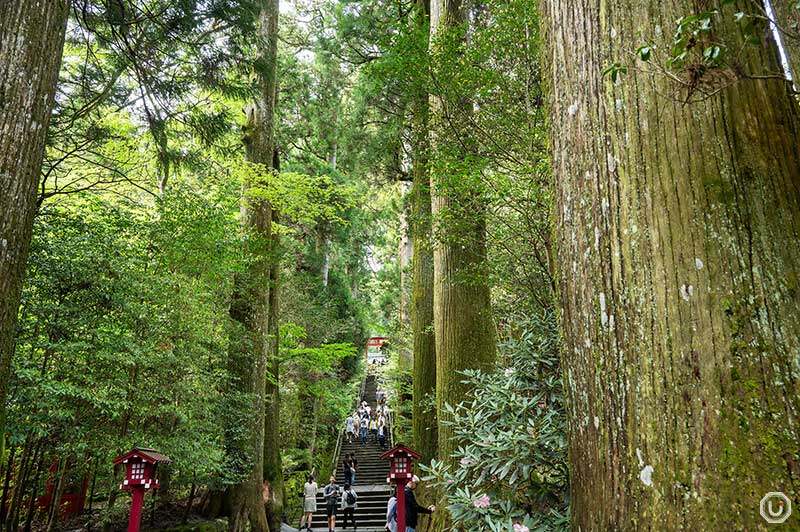
The path leading to Hakone Shrine’s main shrine building
Hakone Shrine also has routes accessible for wheelchairs. From the three parking lots (No.1 to No.3), visitors using wheelchairs can reach the main shrine directly from the No.3 parking lot. Although there are steps in front of the main shrine, a route on the left side allows access up to the offertory box.
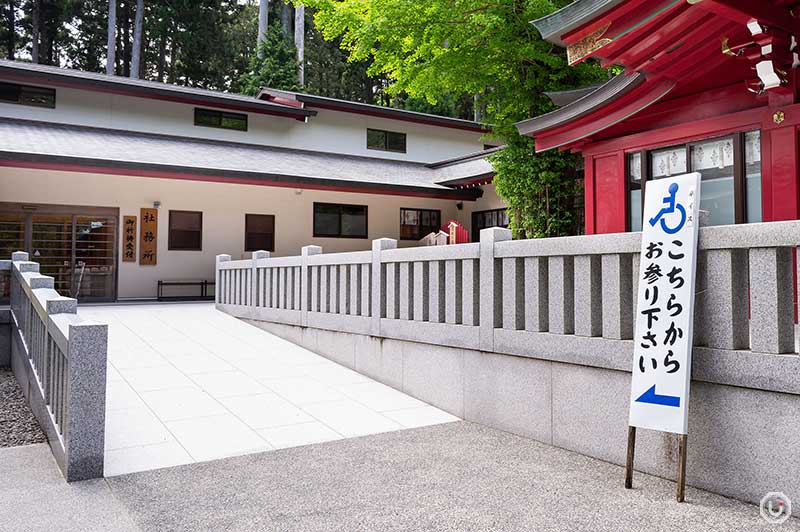
One of the spots to seek further blessings at Hakone Shrine is the area that displays the uchide no kozuchi (sometimes translated as “magic mallet”) near the offertory box of the main building.
The uchide no kozuchi is a treasure from an old Japanese folktale, depicted as a tool that produces various things when swung.
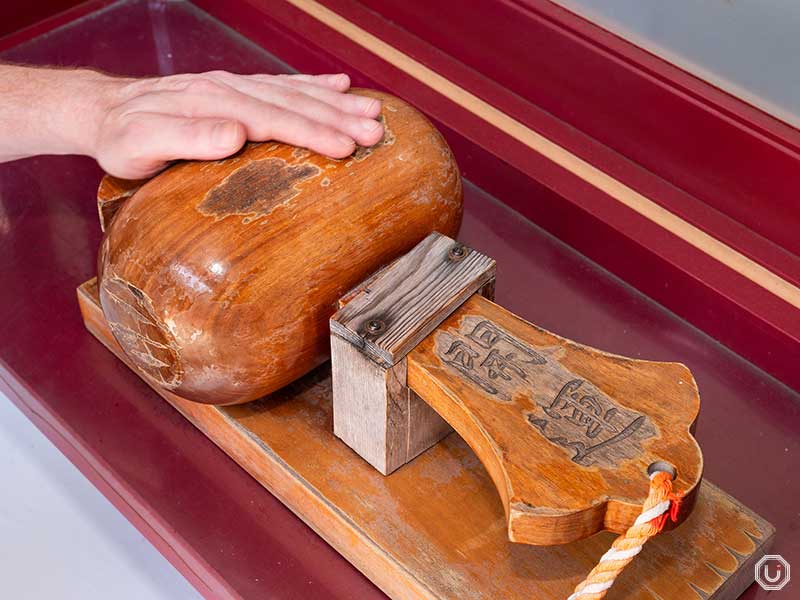
The uchide no kozuchi located near the main building at Hakone Shrine
To receive blessings from the uchide no kozuchi at Hakone Shrine, first, make a wish in your heart and stroke the kozuchi (mallet). Then, receive the kozuchi omamori (a protective omamori amulet associated with the mallet).
It’s said that this amulet, infused with your wish, gains the power of the uchide no kozuchi to make your wish come true.
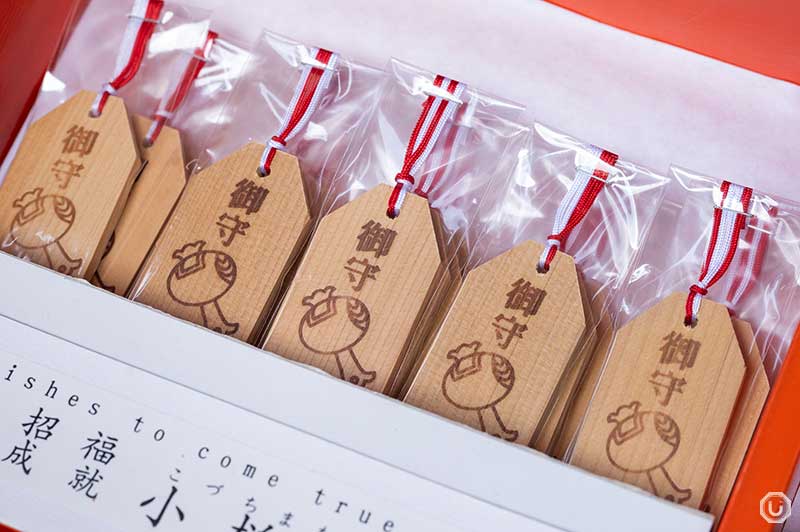
Kozuchi omamori 500 JPY
The sacred power of the “Dragon God Water”
To the right of Hakone Shrine’s main hall is the new building of Kuzuryū Shrine.The main shrine is located on the shores of Lake Ashinoko, requiring a long walk or boat to visit. This new building next to Hakone’s main hall was built to allow more people to worship easily and receive the same divine virtues as the main Kuzuryu Shrine.
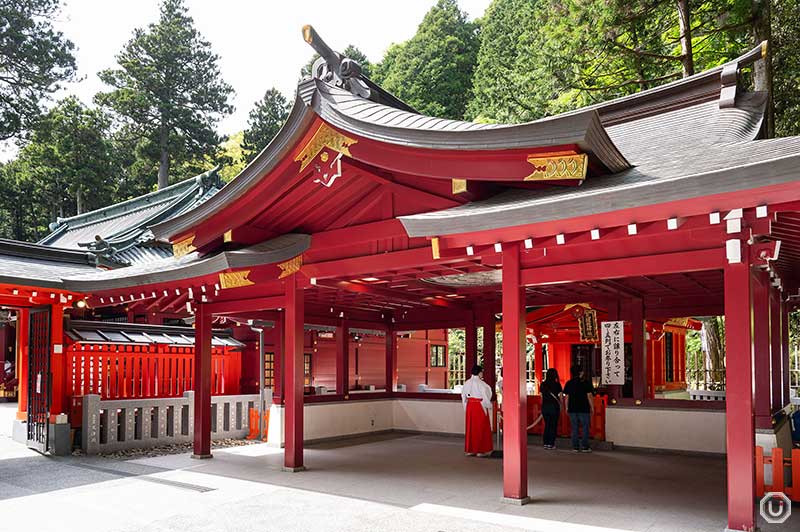
Kuzuryu Shrine’s new building
Located in front of the new building is the ryūjinsui (Dragon God Water) flowing from the mouths of nine dragon statues.
The ryujinsui is believed to possess sacred power, and it is said that taking a sip can cleanse and purify the mind and body. Visitors can also bring containers to take the water home with them.
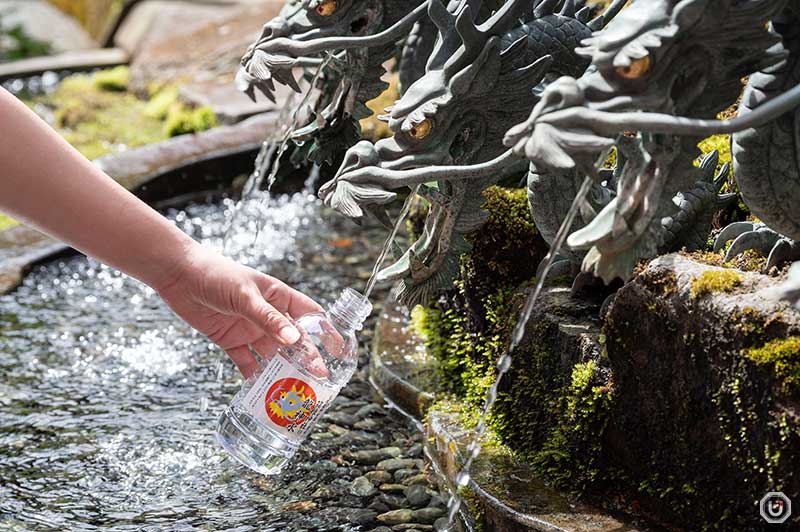
Ryujinsui
Empty plastic bottles are distributed right next to Hakone Shrine’s main hall. You can get these mini bottles, perfect for carrying the water, for 100 JPY each at the shrine office!
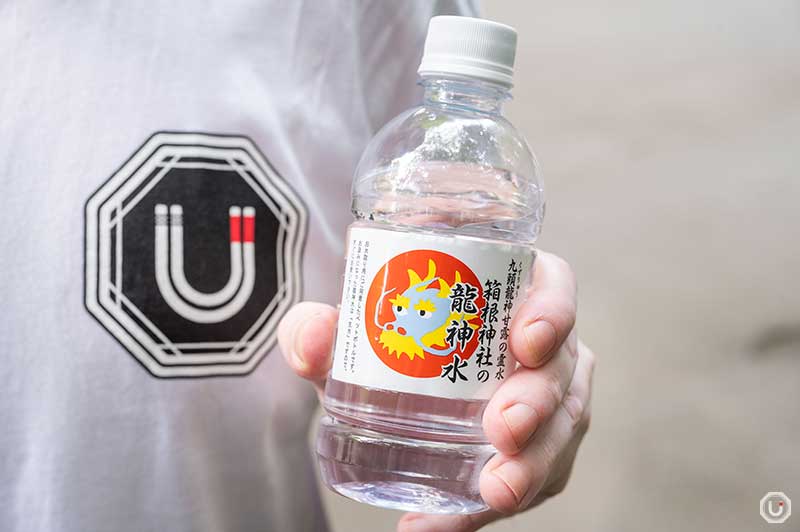
Ryujinsui should be consumed as soon as possible as it is very fresh water
Be sure to visit the summit shrine Hakone Mototsumiya on Mount Komagatake
After visiting Hakone Shrine and the new building of Kuzuryu Shrine, there is another shrine worth visiting: Hakone Mototsumiya at the summit of Mount Komagatake.
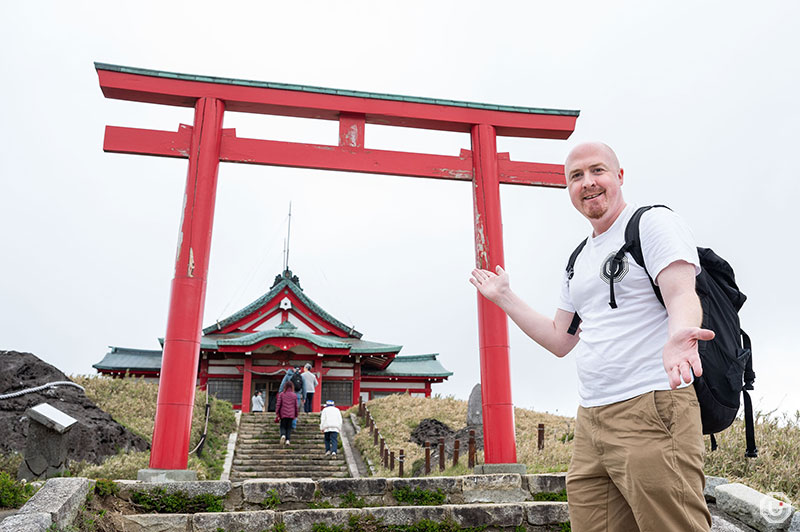
Hakone Mototsumiya
Hakone Mototsumiya, located at the summit of Mount Komagatake, has long been a place of worship, with the current shrine building constructed in 1964.
Right next to the shrine building is the large bakōseki rock, said to be where a deity descended riding a white horse.
Hakone Mototsumiya offers a unique experience where visitors can feel the ancient faith and the power of nature throughout their entire body.
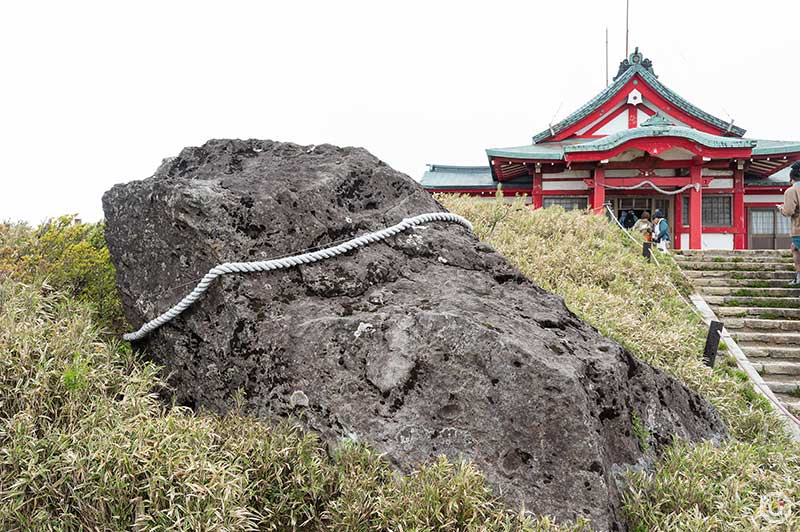
Bakoseki
It’s important to note that there is not always a Shinto priest at the Hakone Mototsumiya shrine building. When no priest is present, the doors are closed but you can still worship from outside.
You can also receive a goshuin seal as proof of your visit at Hakone Shrine itself.
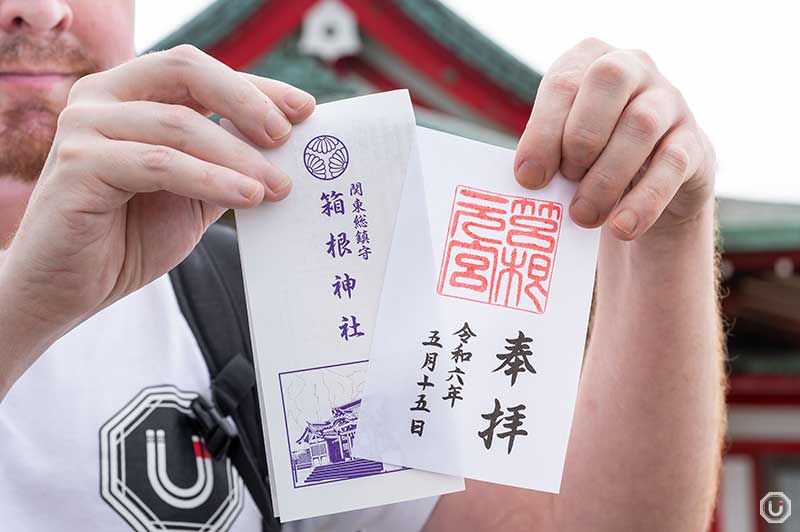
Hakone Mototsumiya goshuin 500 JPY
As of May 2024, hiking trails to the summit are closed, so the only way to reach Hakone Mototsumiya is via the Komagatake Ropeway from Hakone-en Station every 20 minutes between 9:00 AM and 4:30 PM.
It’s a 30-minute walk or 7-minute taxi ride from Hakone Shrine to Hakone-en Station.
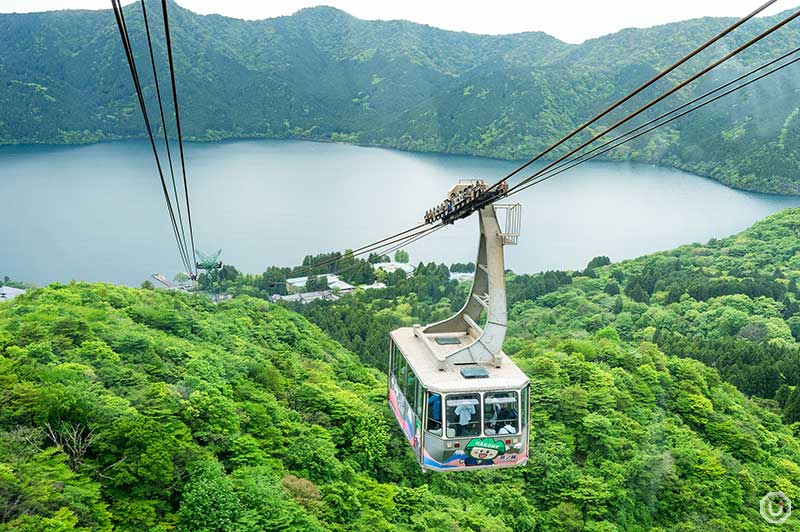
Komagatake Ropeway round-trip ticket adults 1,800 JPY children 900 JPY
Enhanced blessings with the “Three-Shrine Pilgrimage!”
Visiting all three shrines – Hakone Shrine, Kuzuryu Shrine, and Hakone Mototsumiya – is called the “Three-Shrine Pilgrimage” and is said to grant even greater blessings.
Visiting only Hakone Shrine and Kuzuryu Shrine is called the “Two-Shrine Pilgrimage,” which also provides significant blessings. However, if possible, challenge yourself to visit all three!
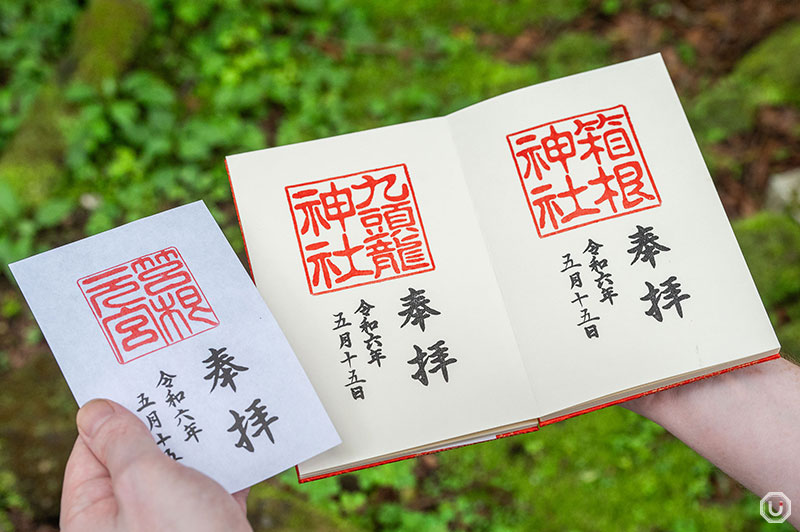
Hakone Mototsumiya goshuin (left), Kuzuryu Shrine goshuin (middle), Hakone Shrine goshuin (right)
Revered as a guardian shrine of the entire Kanto region, Hakone Shrine is lively with many worshippers on both weekdays and holidays, and renowned as a top spot for good fortune.
With many tourist attractions nearby as well, it’s definitely worth a visit – you may receive blessings beyond your imagination!
Shrine information
| Name | 箱根神社 Hakone Shrine |
|---|---|
| Address | 80-1 Moto-Hakone, Hakone-cho, Ashigarashita-gun, Kanagawa-ken
|
| Access |
(Bus Stop)Motohakone 10-minute walk from Motohakone Bus Stop
(Bus Stop)Motohakone Port 12-minute walk from Motohakone Port Bus Stop |
| Phone number | 0460-83-7123 |
| Parking lot operating hours | 7:00-17:00 |
| Sacred items | Available from 8:15-17:00 |
| Goshuin | Available from 8:15-17:00 |
| Omikuji | Available from 8:15-17:00 |
| Admission fee | Free There are facilities that require an additional entrance fee |
| Official website | https://hakonejinja.or.jp/ |
| Other information |
|
※The information in this article is current as of May 2024.
